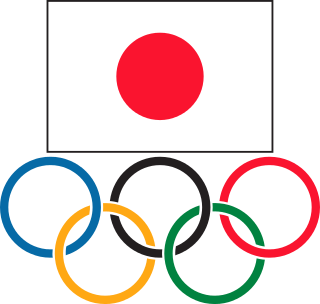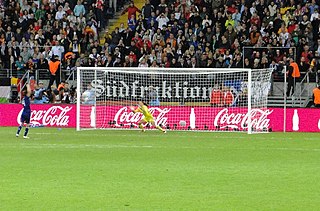Results
| 2000.06.02 | Japan | 2–1 | New Zealand | Australia |
| Nishina Yamagishi | ? |
| 2000.06.08 | Japan | 1–4 | United States | Australia |
| Obe | ? ? ? ? |
| 2000.12.17 | Japan | 1–1 | United States | United States |
| Sawa | ? |
This page records the details of the Japan women's national football team in 2000.
| 2000.06.02 | Japan | 2–1 | New Zealand | Australia |
| Nishina Yamagishi | ? |
| 2000.06.08 | Japan | 1–4 | United States | Australia |
| Obe | ? ? ? ? |
| 2000.12.17 | Japan | 1–1 | United States | United States |
| Sawa | ? |
| Player | −1999 | 05.31 | 06.02 | 06.04 | 06.08 | 06.10 | 12.17 | 2000 | Total |
| Homare Sawa | 53(25) | - | - | - | - | - | O(1) | 1(1) | 54(26) |
| Kae Nishina | 42(1) | - | O(1) | O | O | O | - | 4(1) | 46(2) |
| Yumi Obe | 38(4) | O | O | O | O(1) | O | O | 6(1) | 44(5) |
| Tomoe Sakai | 29(0) | - | - | - | - | - | O | 1(0) | 30(0) |
| Nozomi Yamago | 24(0) | O | - | O | O | - | O | 4(0) | 28(0) |
| Hiromi Isozaki | 23(0) | O | - | O | O | O | O | 5(0) | 28(0) |
| Mito Isaka | 21(8) | O | O | O | O | O | - | 5(0) | 26(8) |
| Ayumi Hara | 15(1) | O | O | O | O | O | O | 6(0) | 21(1) |
| Shiho Onodera | 11(0) | - | O | - | - | O | - | 2(0) | 13(0) |
| Miyuki Yanagita | 10(2) | O | - | O | - | O | - | 3(0) | 13(2) |
| Mai Nakachi | 10(0) | - | - | - | - | - | O | 1(0) | 11(0) |
| Yasuyo Yamagishi | 9(4) | O | O(1) | O | O | O | - | 5(1) | 14(5) |
| Yayoi Kobayashi | 8(2) | - | - | - | - | - | O | 1(0) | 9(2) |
| Rie Kimura | 8(0) | O | O | O | O | O | O | 6(0) | 14(0) |
| Tomomi Fujimura | 7(0) | O | O | O | O | O | O | 6(0) | 13(0) |
| Yoshie Kasajima | 5(1) | O | O | O | O | - | O | 5(0) | 10(1) |
| Megumi Torigoe | 5(0) | - | O | - | - | O | - | 2(0) | 7(0) |
| Kozue Ando | 1(0) | O | O | O | O | O | - | 5(0) | 6(0) |
| Yuka Yamazaki | 0(0) | O | O | O | O | O | O | 6(0) | 6(0) |
| Mio Otani | 0(0) | O | O | O | O | O | - | 5(0) | 5(0) |
| Harue Sato | 0(0) | O | - | O | O | O(1) | - | 4(1) | 4(1) |
| Eriko Arakawa | 0(0) | - | - | - | - | O | O | 2(0) | 2(0) |
| Megumi Ogawa | 0(0) | - | - | - | - | - | O | 1(0) | 1(0) |
The Japan women's national football team, commonly known as Nadeshiko Japan (なでしこジャパン), represents Japan in women's association football and is run by the Japan Football Association (JFA). The only country to win every FIFA competition and the most successful women's national team in the Asian Football Confederation, its highest ranking in the FIFA Women's World Rankings is 3rd, achieved in December 2011.
The Kirin Cup Soccer is an association football tournament organised in Japan by the Kirin Brewery Company. The host, Japan, is a participant in every edition. The tournament was founded in 1978 then known as Japan Cup, and was last held in its full form in 2022.
Japanese football in 2006
The Japan national under-17 football team is a national association football youth team of Japan and is controlled by the Japan Football Association. The team were champions in the 1994 and 2006 AFC U-17 Championships, as well as the 2012 AFF U-16 Youth Championship. The year before the FIFA U-17 World Cup, the national team is renamed the Japan national under-16 football team, and the year before that, the national team is renamed the Japan national under-15 football team.

The Japan national under-23 football team is a national association football youth team of Japan and is controlled by the Japan Football Association. The team won the gold medal at the 2010 Asian Games and were champions in the 2016 AFC U-23 Championship. Since 1992, it was decided that teams targeting athletes under the age of 23 will participate in the Olympics. Therefore, the name changes to Japan national under-22 football team the year before the Olympics and Japan national under-21 football team two years prior. The exception to this was the 2020 Tokyo Olympics, which was postponed one year, so in 2021, the team was called the Japan national under-24 football team.
The following describes Japanese football in 1998.

The 2011 FIFA Women's World Cup final was an association football match that took place on 17 July 2011 at Commerzbank-Arena, in Frankfurt, Germany, to determine the winner of 2011 FIFA Women's World Cup. It was played between Japan and the United States. Japan won 3–1 in a penalty shoot-out following a 2–2 draw after extra time, becoming the first Asian team to win a senior—either men's or women's—World Cup final. Japan's victory was a major upset, made even more meaningful for the country as Japan was still feeling the effects of the 2011 Tōhoku earthquake and tsunami that killed more than 15,000 people prior to the tournament.

This article lists the results and fixtures for the Japan women's national football team.
This page records the details of the Japan women's national football team in 1998.
This page records the details of the Japan women's national football team in 1999.
This page records the details of the Japan women's national football team in 2004.
This page records the details of the Japan women's national football team in 2006.
This page records the details of the Japan women's national football team in 2008.
This page records the details of the Japan women's national football team in 2011.
This page records the details of the Japan women's national football team in 2012.
This page records the details of the Japan women's national football team in 2016.
The France Olympic football team, also known as the France national under-23 football team, represents France in international football competitions in Olympic Games. It has been active since 1900, and first competed in 1900. Olympic football was originally an amateur sport, and as the pre-World War II France national team was also amateur, it was able to send a team to the games. The rules on amateurism were relaxed in the 1980s, which allowed France some success, notably a gold medal finish in 1984. Since 1992 the tournament has been competed by under-23 teams, making France's Olympic qualification dependent on the results of the under-21 team. Only in 2020 the French returned to the Olympic stage.
The Japan women's national under-23 football team is a national association football youth team of Japan and is controlled by the Japan Football Association.
This article provides details of international football games played by the Israel national football team from 1960 to 1989.